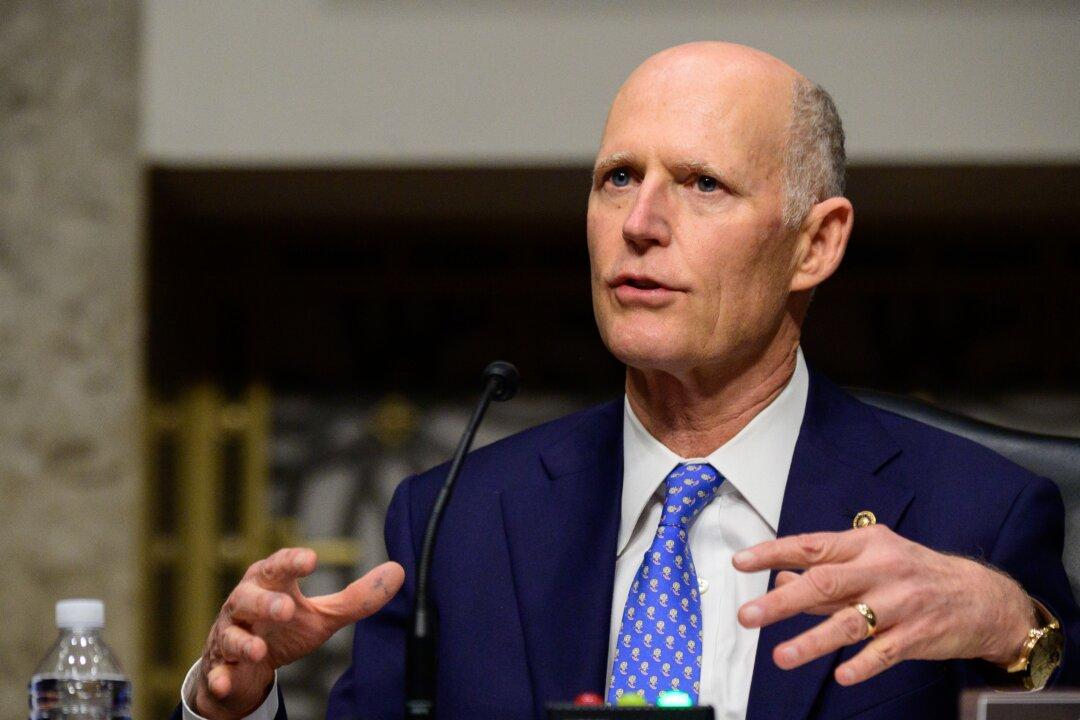In a Wednesday speech on the Senate floor, Sen. Rick Scott (R-Fla.), joined by Sens. Ron Johnson (R-Wis.) and Mike Lee (R-Utah), introduced legislation that would bar the Biden administration from implementing vaccine passports requirements for interstate travel.
Scott began by praising the Trump administration for its quick development of the CCP (Chinese Communist Party) virus vaccine, which he noted has been very successful. But, he continued, “government should not issue [mandates]” as President Joe Biden has done.





